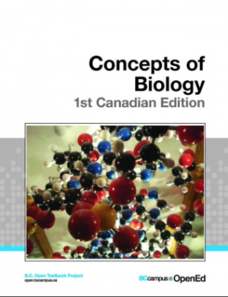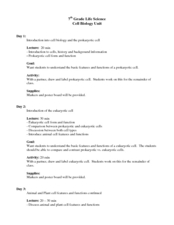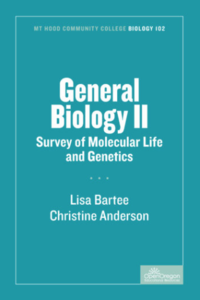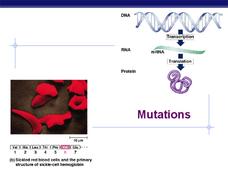BC Open Textbooks
Concepts of Biology – 1st Canadian Edition
How diverse are living things? Individuals explore topics such as cells as the foundation for life, cell division and genetics, molecular biology, and animal reproduction using an open resource Biology textbook. They learn key terms...
Serendip
Cells as Molecular Factories
Cells are both made of molecules and make molecules all at the same time! An exploratory lesson provides a means for scholars to research the components of cells made of molecules and also investigate the molecule-producing power of...
Virginia Department of Education
Cell Parts
What do a bird, an egg, a rabbit, and a toad all have in common? This fun-filled resource explains the similarities and differences between cells and how all cells are similar, yet all are different. Learners begin by depicting a...
Virginia Department of Education
The Cell Cycle and Mitosis
What a packed lesson! Provide your class with the opportunity to learn about the cell cycle in several exciting ways. Biologists first learn about the theory behind mitosis, then proceed to view onion tips under the microscope and create...
Serendip
The Molecular Biology of Mutations and Muscular Dystrophy
Different types of mutations cause unique types and degrees of muscular dystrophy. Scholars learn about the types of mutations and the impact on the body. They compare the location of the mutations and draw conclusions about how it is...
Curated OER
AP Biology Lab Review
A seventy-two slide PowerPoint that reviews several lab explorations done in an AP Biology course. For each lab there is a description, concepts, and conclusions. Many pictures and graphics make this visually appealing, but it would not...
Curated OER
Cell (Biology)
Students conduct a series of activities to explore the nature of cells. In this biology instructional activity, students observe plant and animal cells under the microscope and compare them. They differentiate osmosis and diffusion.
Open Oregon Educational Resources
General Biology II: Survey of Molecular Life and Genetics (Mt. Hood Community College Biology 102)
What could be more real life than a biology course? Mt. Hood Community College offers a complete biology textbook with an emphasis on genetics. Topics range from DNA replication to biotechnology and inheritance patterns.
Serendip
Diffusion and Cell Size and Shape
Is your class ready to size up the topic of diffusion? Help them get cell shape savvy with a well-written handout. The resource covers how substances such as oxygen passively move through the cell membrane and how cell size and shape...
Serendip
Structure and Function of Cells, Organs and Organ Systems
Cells of different organs have unique cell functions. Learn how cell functions vary depending on their roles in the body using an inquiry-based activity. Scholars analyze the cell structure to make comparisons to its functions, allowing...
Curated OER
How Mutations Lead to Changes in Cell Structure and Function
Students investigate how mutations lead to changes in cell structure and function. They construct an oligonucleotide, identify a protein sequence, design a step-by-step mechanism of how they think cells repair damaged DNA, and prepare...
Virginia Department of Education
Structure and Function of Cell Membranes
Lead your high school class on an exploration inside the cell. Individuals investigate the relationships between cells structure and function given their relative locations on the cell membrane. They explore the concept of homeostasis...
Serendip
Using Molecular and Evolutionary Biology to Understand HIV/AIDS and Treatment
HIV mutates rapidly, making treatments challenging to find. Scholars learn about why it mutates so quickly and how scientists race to find treatments. The resource approaches the issue from both a molecular and evolutionary perspective...
Serendip
Understanding the Biology of Cancer
After initial exposure to a carcinogen, a cancer diagnosis often takes more than a decade due to the slow buildup of mutated cells in the body. Scholars learn about the biology of cancer with a worksheet and discussion questions. They...
Curated OER
Games and Activities to Teach Molecular Genetics
Students demonstrate a working knowledge of cell interactions such as DNA replication, protein synthesis (transcription and translation), through active participation in a cooperative group.
Curated OER
Biotechnology
A continuous cascade of information comes through this PowerPoint on biotechnology. The topic is defined, a history is presented, and basic genetic engineering techniques are explained. The topic is covered in an objective manner,...
Curated OER
The Nobel Prize in Chemistry 2003 - Information for the Public
An information-packed eight-page article detailing the history of understanding active transport across cell membranes makes up the bulk of this handout. Two pages of reading comprehension and critical-thinking questions follow. The...
Curated OER
The Great Animal Systems Challenge!
Advanced placement biology aces list systems that have evolved over time, adaptations, and structure-function relationships. The resource requires plenty of writing to answer these questions, so allow a few days for them to complete the...
Curated OER
Mutations
The basics of mutation types and some potential effects of those are described and diagrammed here. Each detail is very clear and includes the labels and translation change exhibited. A great slideshow to expand on DNA replication issues.
Curated OER
Diffusion across a Selectively Permeable Membrane
Lab groups fill a section of dialysis tubing with glucose and starch solutions and suspend it in a water bath. They use iodine as a starch indicator and a glucose test strip to find out if either of the materials crossed the selectively...
Curated OER
Osmosis and Diffusion: Egg Lab
Students examine why diffusion and osmosis happen in an egg cell. In this diffusion lesson plan students demonstrate a semi permeable membrane.
Curated OER
DNA Basics, Bacterial Cell Walls
Some basic descriptions of DNA and the appearance of structures in a bacteria are included along with great diagrams. The presentation has clear, but detailed slides, and your students will find the information about Gram staining easy...
Virginia Department of Education
Prokaryotes
Lead your biology class on a cell-sized adventure! Emerging scientists construct models of prokaryotes, then design an experiment to properly grow a bacterial culture. They conclude the activity by viewing the culture under a microscope....
Curated OER
PROTOPLAST PRODUCTION
High schoolers are allowed to strip away the cell walls of plants cells (using enzymes) and then observe the resulting spherical protoplasts (plant cells minus the cell wall). They see that plants cells indeed have a plasma membrane in...

























